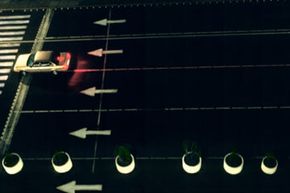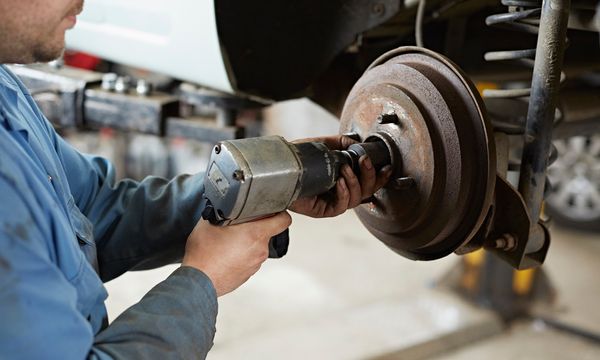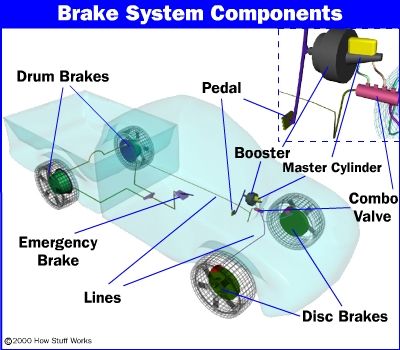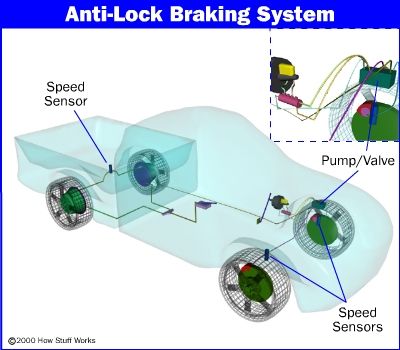Have you ever seen a movie where someone is driving down a hill, pumping the brakes madly, while screaming that the brakes are out? Has it ever happened to you? Let's hope not. While that situation makes for great comedy on TV, it's one you don't ever want to be in.
Under optimum operating conditions, your brake pedal should feel firm throughout its travel. The harder you push it, the firmer it should feel. When you mash the brakes quickly, like we've all done from time to time to avoid rear-ending someone, your brake pedal will be at its firmest.
Advertisement
Power brakes feel impossibly hard without the engine running but as soon as you start the car, you feel them give a bit. That's normal. If your pedal goes to the floor, you have a problem. The most likely suspects are a breach in the brake system that is allowing brake fluid to escape or air in the brake lines [source: 2CarPros]. If your brake pedal feels spongy or goes to the floor, check your brake fluid immediately. Maybe it's out. The brake system uses hydraulic pressure and if there's a leak somewhere in that system, your pedal will feel soft. You can easily inspect for a leak by looking under the vehicle. If you see some fluid near one of your wheels, you have a leak somewhere in that area.
Another way to tell if you have a leak or brake line obstruction is by how the car stops. If it pulls to one side, to the right for example, that means the left brake isn't working as effectively as the right one. For some reason, the fluid isn't getting to the left caliper as efficiently as it should. It could be due to blockage [source: 2CarPros]. Sponginess can also mean you may have air in the brake system and need to bleed your brake lines [source: CDX eTextbooks]. This can occur right after you've replaced your brake pads, brake lines or brake fluid and air becomes trapped in the closed brake system. In some case, a soft pedal could be a result of a master cylinder malfunction [source: 2CarPros].
Softer brake materials will feel different, too, especially if you change from one type to another and are used to a different type. If you change from a carbon-Kevlar (non-asbestos organic) or ceramic composite pad to a semi-metallic pad you'll feel a difference. Ceramic and Kevlar-composite pads are softer and will feel as such while semi-metallics will feel a bit firmer [source: Consumer Reports]. As long as you have a consistent brake pedal, you're fine either way.
Your brake pedal can also tell you about the condition of your brakes. If you feel grinding, your brake pads are worn down and need replacing. If your pedal feels shaky, the rotors are warped. In both cases, you'll need to replace the pads and most likely rotors.
Here's a list to help you determine how your brake pedal feels and what it means.
- Pedal goes to the floor -- no pressure in the master cylinder; system could have a leak
- Pedal is soft and goes further than normal -- brake fluid leak somewhere in the system
- Pedal feels gritty -- brake pads are worn to the metal and grinding on the rotors
- Pedal is extremely hard and brakes don't work -- brake booster isn't working properly
Make sure to care for your brakes properly. If you'd like to learn more about how your brakes work, visit the links on the next page.
Advertisement



